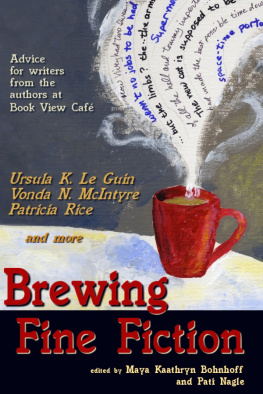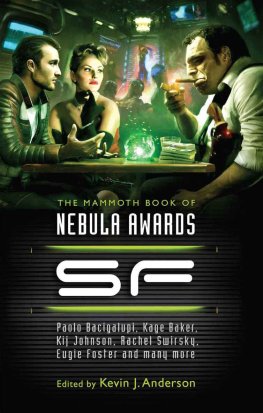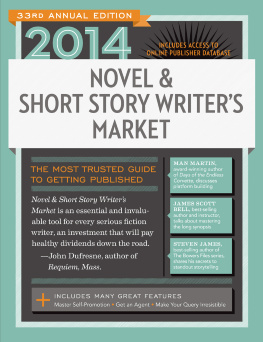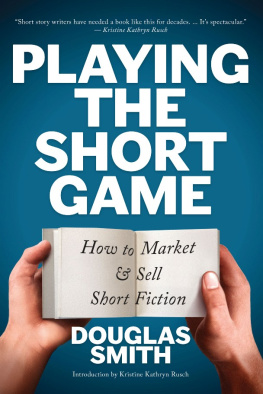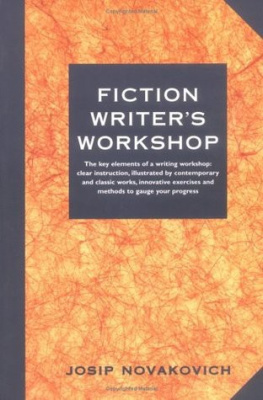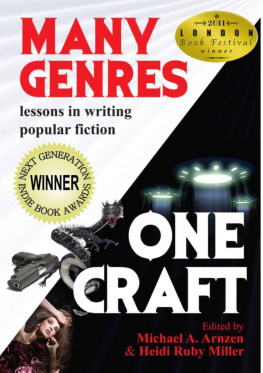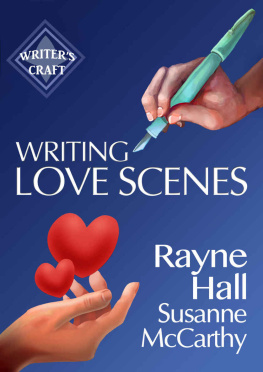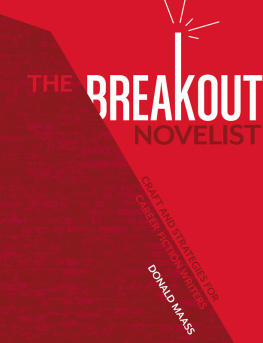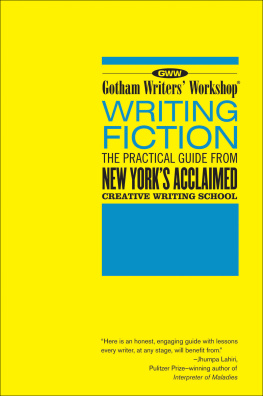About Book View Caf
Book View Caf Publishing Cooperative (BVC) is a an author-owned cooperative of over fifty professional writers, publishing in a variety of genres including fantasy, romance, mystery, and science fiction.
In 2008, BVC launched a website, bookviewcafe.com, initially offering free fiction and gradually moving to selling ebooks of members backlist titles, then original titles. BVCs ebooks are DRM-free and are distributed around the world. BVC returns 95% of the profit on each book directly to the author. The cooperative has gained a reputation for producing high-quality ebooks, and is now moving into print editions.
BVC authors include New York Times and USA Today bestsellers; Nebula, Hugo, Lambda, and Philip K. Dick Award winners; World Fantasy and Rita Award nominees; and winners and nominees of many other publishing awards.
Contents
Vonda N. McIntyre
Irene Radford
Maya Kaathryn Bohnhoff
Brenda W. Clough
Steven Harper Piziks
Maya Kaathryn Bohnhoff
Brenda W. Cloug h
Ursula K. Le Guin
Jennifer Stevenson
Irene Radford
Sherwood Smith
Nancy Jane Moore
Maya Kaathryn Bohnhoff
Irene Radford
Laura Anne Gilman
Judith Tarr
Sue Lange
Amy Sterling Casil
Pati Nagle
Madeleine E. Robins
Chris Dolley
Irene Radford
Lori Devoti
Pati Nagle
Steven Harper Piziks
Patricia Rice
Madeleine E. Robins
Nancy Jane Moore
Steven Harper Piziks
Brenda W. Clough
Deborah J. Ross
Chris Dolley
Sarah Zettel
Deborah J. Ross
Gerald M. Weinberg
Pitfall #1: The Expository Lump,
or,
As You Know, George,
the Space Stations Orbit Is Degrading Rapidly,
and Were Running out of Air.
Every sf story contains information that the reader must know. Getting that information across gracefully is difficult, but rewarding. Handing it to the reader in the narrative can be done carefully. Handing it to the reader in a lump of expository dialogue is generally not graceful.
Detection trick: If the phrase As you know, or As you should know would make sense in a line of dialogue, the dialogue is probably an expository lump.
Under no circumstances (except for broad humor) should you insert the phrase As you know into a line of dialogue, even if it would make sense. Especially if it would make sense! If the only way to get information to the reader (after youve sweated trying to get it in some other way) is by having one character tell it to another who already knows it, for heavens sake dont draw attention to the fact by adding as you know.
Useful technique: Its easier to describe something if its broken. If something is broken, then you notice it. If its working right, it just sits there being invisible doing its job. Not to be overused!

Pitfall #2: Its Almost Writing,
or,
Half Baked Weasels
Almost and half (half-smile, &c.) are weasel words that allow you to evade the responsibility of being precise. Their use will drain the life from your prose. Some people litter their pages with these words to no purpose. Beware!

Pitfall #3: Subjunctive Tension,
or,
Dont Mince Words, Bones,
Tell Me What You Really Think!
Samuel R. Delany coined the term Subjunctive Tension, which is the difference between what you mean and what you actually say. In realistic fiction you can get away with a lot of metaphorical (not to say sloppy) phrasings that, in science fiction, can bring the reader up short.
Examples:
His eyes fell to the floor. (Boing! boing!)
She screwed up her face. (To the ceiling? Owie!)
He ran through the door. (Able to penetrate strong oak in a single bound! Might one possibly mean the doorway?)
She strained her eyes through the viewscreen. (My all-time fave.)

Pitfall #4: Rampant Capitals,
or,
The Nouns of Doom
Be careful about capitalizing words in order to indicate their importance. Several problems attend rampant capitalization.
First, extraneous capitalization tries and fails to conceal a lack of intensity, style, substance, or all those qualities, in your prose.
Second, if you capitalize Many of the Nouns in your Sentences, your Prose your Wish a Story in German to write will read. (In German you capitalize all the nouns.)(And the verbs come last, but thats a different Pitfall.)
Third, when you sell your novel, the cover blurb will contain every single word youve capitalized. Here is a possible result:
On the Plains of Mystery, Prince Greeb of the Empire of Thorns rides his WindHorse, Fred, to challenge the TrollBugs to a FireDuel!
You get my drift. It looks dumb. Dont set yourself up for it.

Pitfall #5: Species v. Specie,
or,
How Much for Just That Species?
A species is a group of living things reproductively isolated from other groups. The plural of species is species. Specie means money, specifically, coined money.
Other false singulars: Phenomena is plural; its singular is phenomenon. Series is both singular and plural; the singular is not serie. Bacterium is the singular; bacteria is the plural. Biceps is the singular. Bicepses is the plural, though you can use biceps if you insist. There is no such thing as a bicep.

Pitfall #7: Neologisms,
or,
Calling a Rabbit a Smeerp,
or,
This Essay Almost Made My Spell-Checker Toss Its Cookies
Neologisms are made-up words. Be very careful with them. If youre good at them, terrific. (Heinlein was great at them. I got all the way through The Moon is a Harsh Mistress before I realized that tanstaafl wasnt a perfectly good Dutch word, and I used to live in the Netherlands.) If you arent, you can make yourself sound silly.
In particular, watch out for what Damon Knight calls calling a rabbit a smeerp. Just because you call a long-eared short-tailed lagomorphic mammal with long hind legs a smeerp doesnt make it alien. We all write SF in standard English, unless we are Anthony Burgess (who did made-up dialect well), or some other people who do it not so well. Theres no particular reason to translate words for time, distance, and food into gibberish. (I dont know why time, distance, and food are so susceptible to this in science fiction, but they are.) If your characters are drinking coffee, have them drink coffee, not klaa or jav. Coffees been around for more than a millennium. Its probably going to last.
Besides, as a linguistically oriented friend of mine pointed out with some exasperation, almost all the made-up words in science fiction written by English speakers sound like made-up words derived from English.

Pitfall #6: Ygdylchaafuks Revenge,
or,
McIntyres Laws of Titles
Never use a title that is (a) impossible to pronounce or (b) embarrassing to say. Doing either causes people to find it awkward to discuss your book. For example, Superluminal (a book of mine) has been misspelled and mispronounced by everybody, up to and including the
Next page
